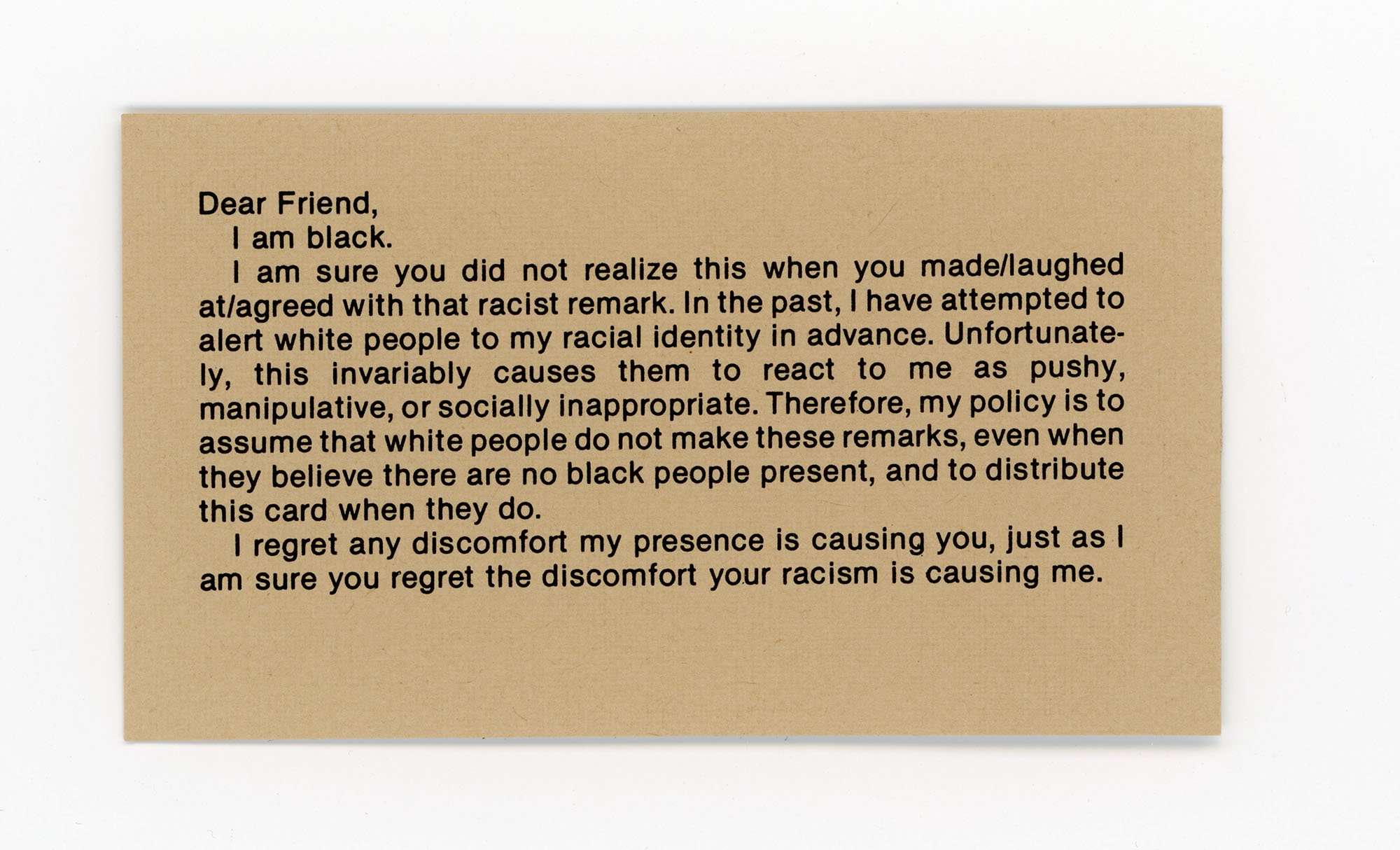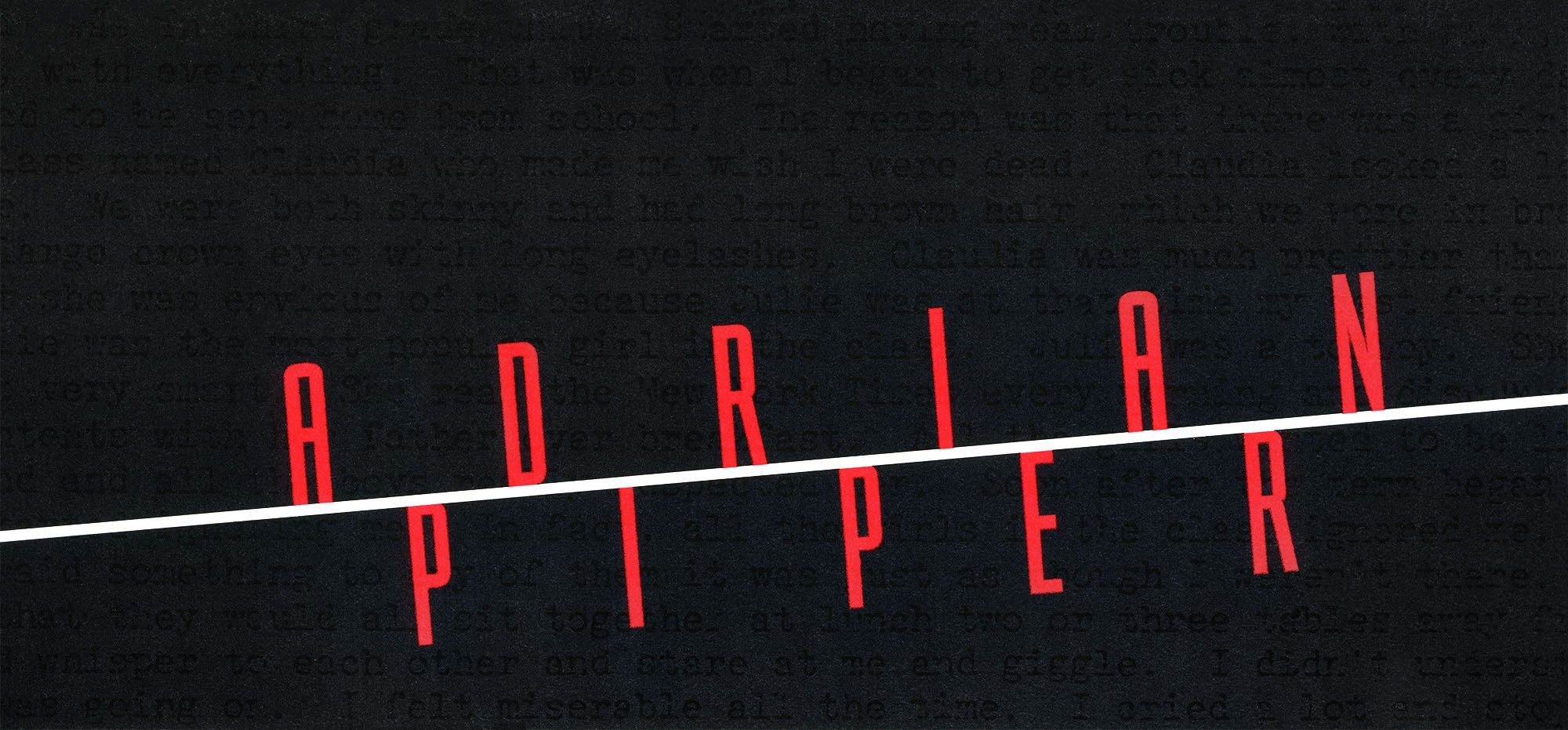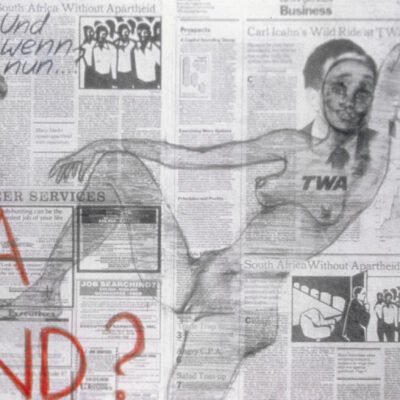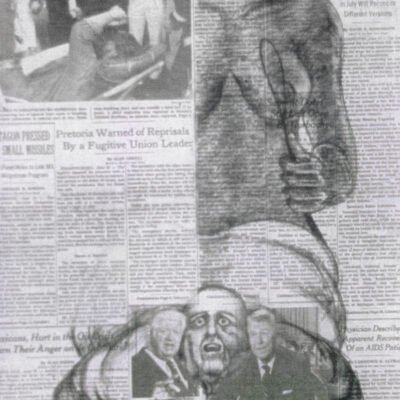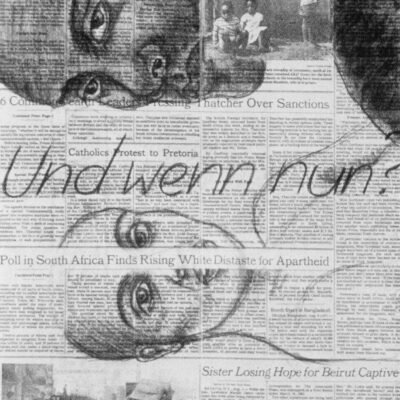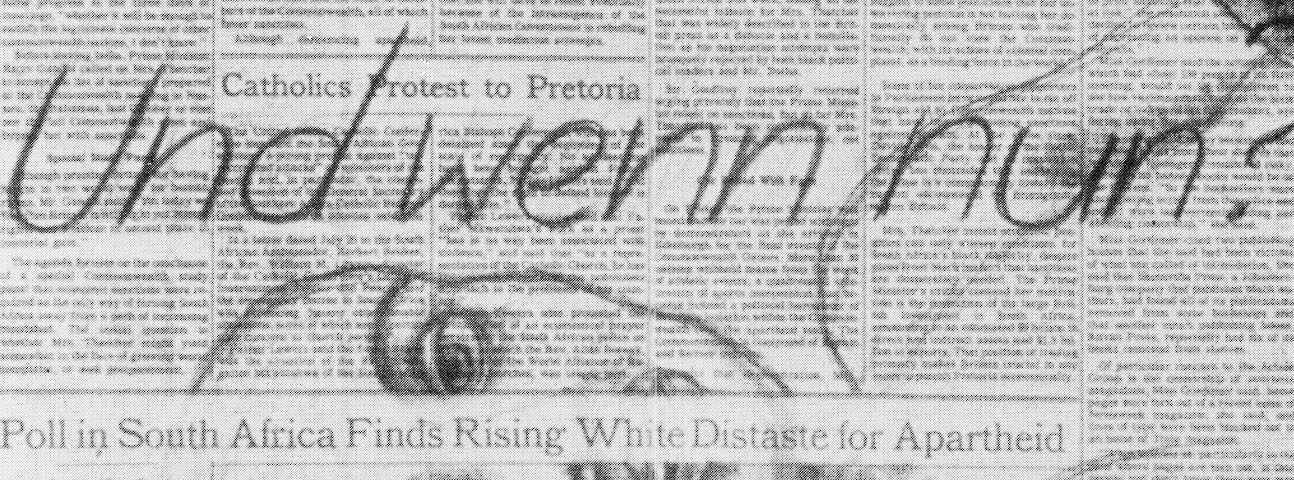

Adrian Piper Political Drawings and Installations, 1975-1991
Nationally recognized, Adrain Piper has exhibited her work for over 20 years and was featured on the cover of Art in America in September, 1990. Also a Harvard-educated philosophy professor, Piper questions assumptions that inform viewer response to her work to uncover racism both blatant and subtle. In video installations and mixed media work, such as “Aspects of the Liberal Dilemma” and “Vanilla Nightmares,” Piper confronts the viewer with provocative and unexpected images.
My Calling (Card) #1 (April 1986)
“The idea behind this series of performances, which I call reactive guerrilla performances, is intervention in order to prevent co-optation. In this first performance, the situation is one in which I find myself in otherwise exclusively white company, in which those present do not realize that I am black. Thinking themselves in sympathetic company, they (or one of them) proceed to make racist or anti-semitic remarks (it should be emphasized that this phenomenon occurs in groups of all economic and educational levels; it would be a mistake to think of it as primarily a working class white phenomenon). My options:
- I say nothing. The consequence is that they think it is all right to make such remarks, and I feel guilty for being deceptive.
- I reprimand them abstractly. i.e. without identifying myself as black. The consequence is that we have an abstract discussion about the propriety of these remarks that leaves their fundamental depositions untouched, and I again feel offended, compromised, deceptive.
- I announce that I am black at the outset, in order to warn them in advance. It is hard to slip this information without seeming forced or artificial. The consequence is that they are on guard, but view me as opportunistic (i.e. a “professional black”), and trying to guilt-trip them, or as socially incompetent. Everyone feels uncomfortable.
- I abdicate my black identity and “blend in.” This is out of the question. Some branches of my family have tried this option, and the ones I know about have turned into really twisted corrupt people.
- *I present the individual(s) who made the remark with my card. Some consequences: it established the possibility of dialogue between me and this individual without disrupting the group as a whole. It allows me to express my anger in a semi-private context that has already been established by the person who made the remark. This means that I can assert my identity without being perceived by the group as “pushy,” “manipulative,” etc. The general character of the statement and the rule-governed policy that governs its presentation conveys the message that the offending individual is behaving in typical and predictably racist ways. This often make the person ashamed, which is what seems called for. ” – Adrian Piper
